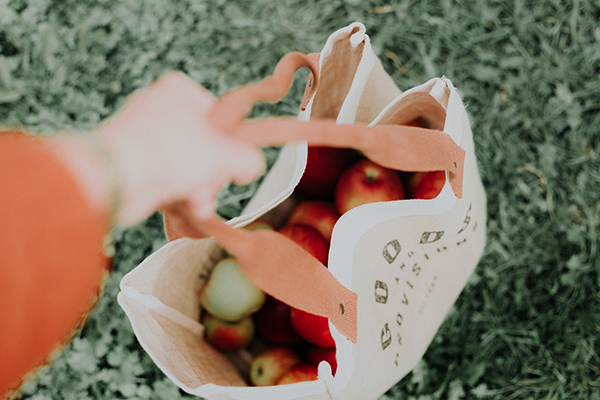Climate change has been a hot topic in the news recently and let’s be honest, the facts are stacking up. The evidence shows that, due to human activity, global temperatures are rising to a level that is not sustainable for the environment to be able to survive. While you may feel like living a more eco-friendly lifestyle won’t have a positive effect on our planet, doing your part to reduce your personal carbon footprint can leave a lasting impact on the environment. If we all make little changes in our daily lives, we can help better the Earth one small step at a time. Keep reading to see how you can be more eco-friendly in your everyday life.
Support local businesses
Believe it or not, one of the easiest ways to adopt a more eco-friendly lifestyle is to shop locally. Not only will you be helping to keep money in your local community, but it’s also more sustainable than shopping at big-name department or grocery stores. For instance, when we shop at the supermarket the food often travels hundreds or even thousands of miles to get there from where it was produced. The greater the distance the food has traveled, the more fossil fuels are burned. Purchasing locally grown food reduces the amount of fossil fuels and carbon being emitted.
Keep this idea in mind when you travel. Rather than going to stores that you are already familiar with, shop at local businesses. Not only will you get to know more about the area where you’re exploring, you’ll also be able to find more unique pieces. Research into finding local shopping experiences where you can visit local designers and artists and find authentic items you may not see back home!
Dispose of old clothing properly
With new styles becoming trendy each year, we’re all guilty of buying clothing we’ll only wear a handful of times. It may seem harmless to toss our clothes in the garbage, but it actually has a long-lasting negative impact on the environment. When we throw out our unwanted clothes, they end up in landfills. While landfills are designed to protect the environment from contaminants, some clothing materials can take up to 40 years to decompose; all the while releasing toxic greenhouse gases like carbon dioxide and methane into the environment. So what can we do to help prevent this? The next time you’re cleaning out your closet, separate your clothing into piles of what you want to keep, donate, sell or give away to friends and family. If you’re in a time crunch or the idea of personally selling your items is overwhelming, you can sell your unwanted clothes through an online secondhand store. They will inspect, photograph, list, sell and ship your clothing for you. Sit back while they do the work for you and watch your bank account grow!
Use reusable shopping bags
While many stores offer canvas bags as an alternative to wasteful plastic and paper bags, many people are still opting for plastic bags. While the small fee to purchase a reusable bag can be a turn-off, they are actually more useful than your standard plastic bag. Plus they’re better for the environment! Canvas bags are sturdier than traditional plastic or paper bags, so they can hold more goods. This also makes them easier to carry. You can also reuse them outside the grocery or department store. Whether it’s to store or pack items, bring your lunch to work, or even use as a beach bag, the possibilities are endless! Making the switch from plastic to reusable bags doesn’t mean you have to get rid of all of the plastic bags you have likely stored somewhere in your home. Reusing plastic bags in small garbage cans throughout your home or recycling your used grocery bags is a great way to live a more eco-friendly life. Remember, every small change can make a huge difference!
Start a compost bin
Home compost bins have been a rising trend over the years, and for good reason! If you’re not familiar with composting, it’s the process of taking organic materials (such as fruit and vegetable trimmings, old plants from your garden, leaf and grass clippings and even food scraps) and recycling them into a soil-like material. Not only will this save you money, it also allows you to reuse things that you would normally throw out and helps your plants grow better in your garden. Why go out and buy expensive compost when you can create your own at home? It may seem like a complicated process, but it’s actually quite simple to start a compost bin yourself. Once you get started, it’s even easier to maintain! Your garden and the planet will thank you.
